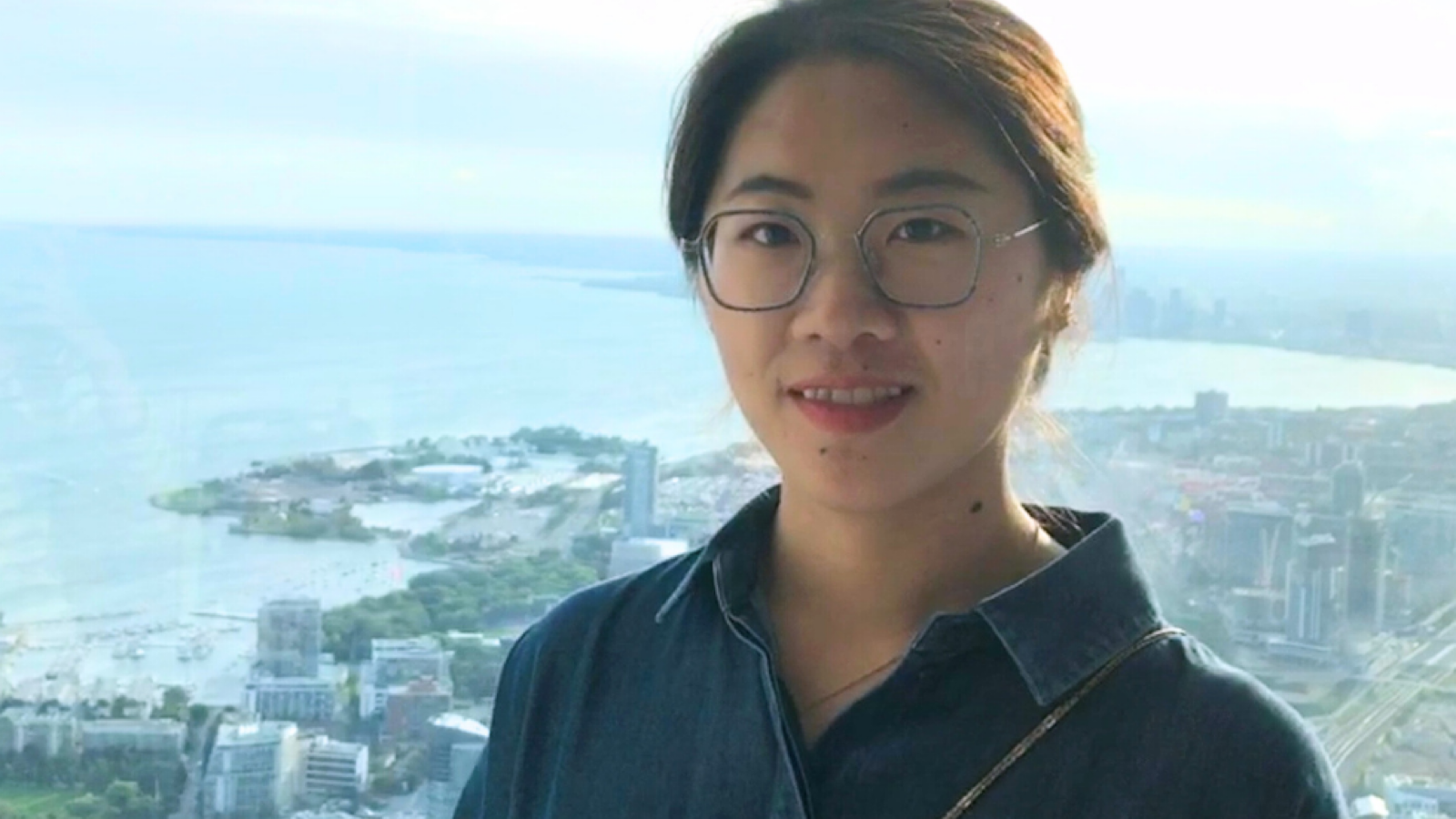Convocation ‘24: Shaelyn Xu, PhD Food Science and Bioresource Technology, Agricultural, Food & Nutritional Science
Donna McKinnon - 25 November 2024
Shaelyn Xu found her passion for bacterial genetics in food science while taking an undergraduate course in Michael Gänzle's Food Microbiology Lab. Gänzle would eventually become her supervisor in both her master’s and PhD programs, and her interest in the subject — in particular biofilm research — continues.
It didn’t always go smoothly, however. Her research on biofilm formation and sanitizer resistance faced several obstacles, including the pandemic, forcing her to draw on resources she didn’t know she had.
“I had to start from scratch and develop my own protocols,” she says. “I remember the satisfaction of seeing progress week by week. This experience taught me resilience and adaptability, and I treasure it as it has guided me in overcoming other challenges in both my life and research.”
Shaelyn’s academic life has now come full circle as an assistant lecturer in the faculty, teaching two undergraduate courses in food science.
“It’s a surreal experience to graduate from the U of A and return to the same classroom to teach these courses as an instructor,” she says. “I have truly enjoyed this experience.”
Congratulations Shaelyn!
What led you to choose your current area of study, and why the U of A for your studies?
I completed my undergraduate degree in Agricultural, Food & Nutritional Science at the University of Alberta, where I had the opportunity to participate in an undergraduate research program in Michael Gänzle's Food Microbiology Lab. This experience ignited my passion for bacterial genetics and genomics within the field of food science. As a result, I began my master’s studies in his lab, which deepened my interest in biofilm research and this growing fascination ultimately led me to transfer to the PhD program.
What is one of your favourite memories from your time at the U of A?
One of my favourite memories from my time at the U of A is the friendships I've built along the way. I’ve had the opportunity to make friends with many people through classes and work with many different people, each bringing unique perspectives and experiences. These connections have made my journey all the more rewarding.
Tell us about your favourite professor and/or class.
There are many courses I enjoyed during my studies, but my favorite was NUFS 401 (Undergraduate Research Project). This course provided a fantastic opportunity to engage in research and develop essential bench skills. It was also where I met my graduate supervisor, Professor Gänzle, and where I developed my interest in pursuing food microbiology for my graduate studies.
During my graduate studies, I particularly enjoyed the statistical class RENR 581 (Introduction to Exploratory Data Analysis) taught by Dr. Peter Blenis. He is an exceptional instructor, and I learned a great deal about statistical analysis, which has been invaluable for my research. Although I am still continuing to learn more about statistics, his class laid a strong foundation for my understanding.
Did you take on any leadership roles while you were a student? If so, please share your experiences.
Yes, I took on several leadership roles during my time as a student. I was actively engaged in various volunteer opportunities, both during my undergraduate and graduate studies. One notable role was serving as the chair of the Agricultural, Food, and Nutritional Sciences Graduate Students’ Association (AFNS GSA), where I organized orientation events to welcome new graduate students. This experience allowed me to develop my leadership skills, foster a sense of community among students, and ensure that newcomers felt supported as they transitioned into their graduate programs.
Did you face any significant obstacles or challenges during your program, and if so, how did you respond?
In my first research project, the main objective was to evaluate the impact of the tLST (transmissible locus of stress tolerance) gene on biofilm formation and sanitizer resistance. I struggled to replicate previously published results, which left my project at a standstill. Compounding this issue, the onset of COVID-19 severely limited my ability to make progress.
In response, I decided to start from scratch and develop my own protocols. Although it took time to achieve results, I remember the satisfaction of seeing progress week by week. This experience taught me resilience and adaptability, and I treasure it as it has guided me in overcoming other challenges in both my life and research.
What advice do you have for current and future students?
Stay curious and do not procrastinate.
How do you plan on celebrating convocation?
I haven't really thought about this yet, but I will probably have a nice dinner after the convocation and plan a trip during the Christmas break.
What's next after graduation?
I have started as an assistant lecturer in the Faculty of ALES, where I am currently teaching two undergraduate courses: NUFS 490 (Innovations in Food Science) and NUFS 363 (Food Microbiology). It’s a surreal experience to graduate from the U of A and return to the same classroom to teach these courses as an instructor. I have truly enjoyed this experience. Since this teaching position is sessional, I am also exploring additional teaching and research opportunities in food science or microbiology starting in 2025.
